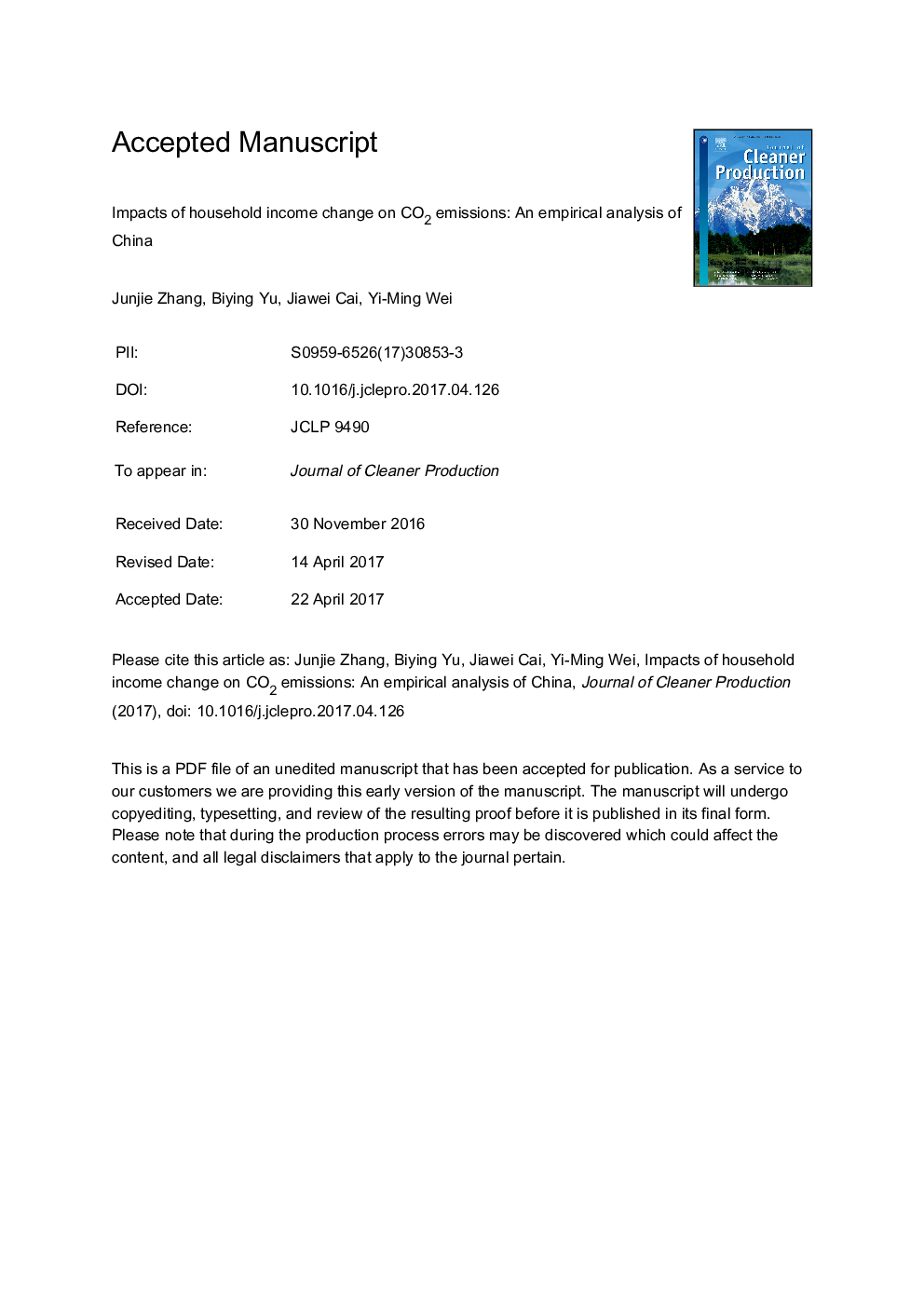| Article ID | Journal | Published Year | Pages | File Type |
|---|---|---|---|---|
| 5481177 | Journal of Cleaner Production | 2017 | 38 Pages |
Abstract
Sustained increase in Chinese household income has exerted positive impact on the consumption of goods and services. This paper aims to analyze the unequal impacts of household consumption across different income households on the whole CO2 emissions, by utilizing a semi-closed input-output model and hypothetical extraction method. The semi-closed input-output model moves household consumption activities into the intermediate use along with dividing urban and rural households to several groups by their income levels, and the hypothetical extraction method (HEM) is used to estimate the reductions of CO2 emissions relative to total emissions after extracting the consumption of each household group. The results show that: (1) the impact on CO2 emissions generated by urban households' consumption are 1.8 times as much as that of rural ones; (2) excluding consumption of higher-income households from the economy would cause greater CO2 emission reductions than lower ones. Specifically, urban highest-income households have the most relative reductions of CO2 emissions, which are â12.2% in 2007 and -13.8% in 2012, while for rural highest-income households are â5.1% in 2007 and -5.1% in 2012. And urban and rural highest-income households are respectively 3.8 and 1.8 times on the relative reductions of the lowest-income ones; (3) the relative reductions of household CO2 emissions from food sectors is the most, while from residence sectors is the least. Based on the above conclusions, this paper puts forward consumption-based policy implications.
Related Topics
Physical Sciences and Engineering
Energy
Renewable Energy, Sustainability and the Environment
Authors
Junjie Zhang, Biying Yu, Jiawei Cai, Yi-Ming Wei,
